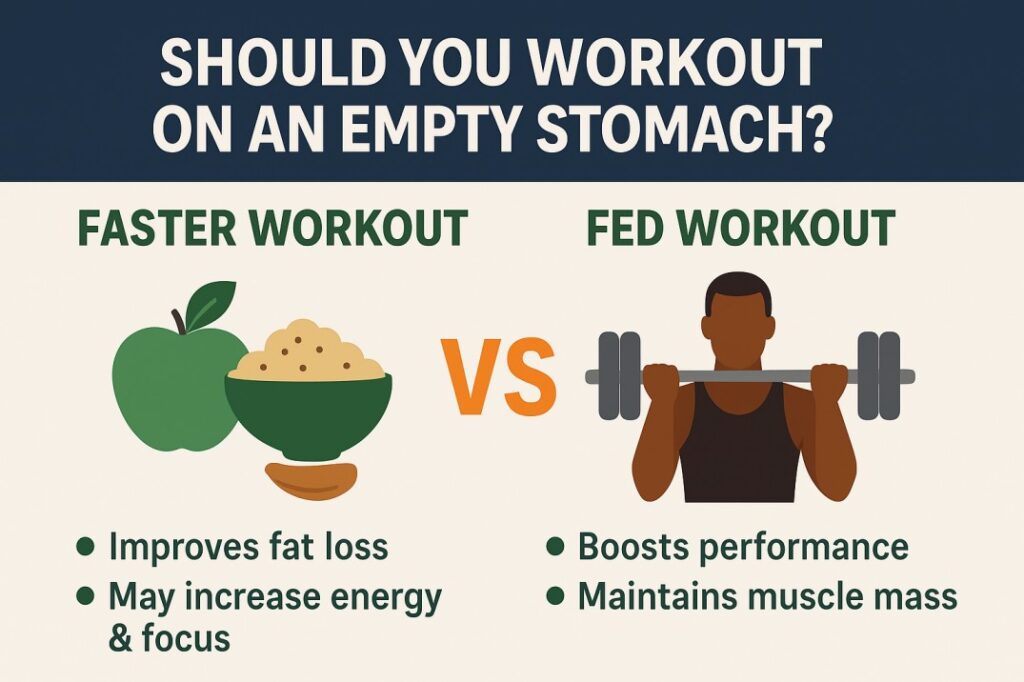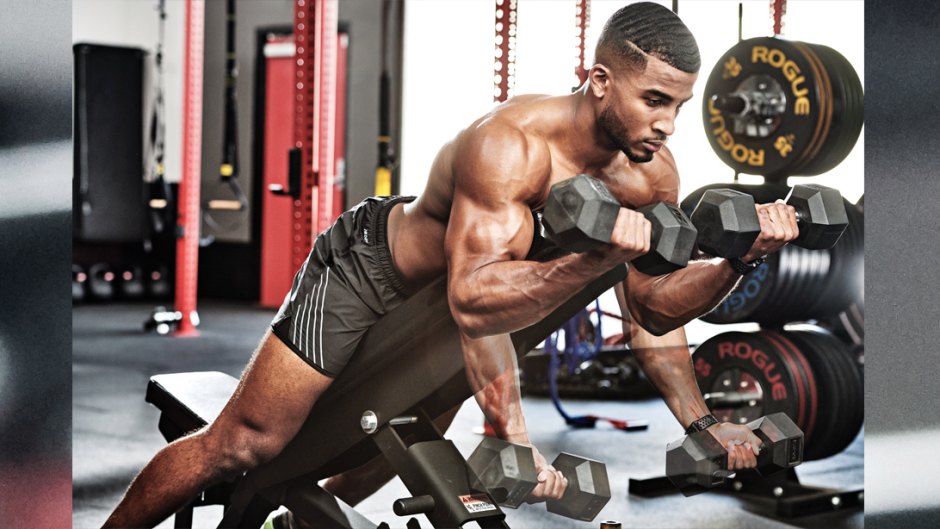🥗 Should You Work Out on an Empty Stomach? The Truth About Fasted Exercise
One of the most common debates in the fitness world is whether you should hit the gym on an empty stomach. Some swear by fasted workouts for fat loss, while others argue that eating before training fuels better performance.
So, what’s the truth? Let’s break it down.
🔥 What is Fasted Cardio?
Working out on an empty stomach (usually in the morning before breakfast) is called fasted cardio. The idea is simple: since you haven’t eaten recently, your body will use stored fat and carbs for energy.
This sounds great in theory, but research shows mixed results.
- ✅ 2016 study (12 men): Those who trained fasted burned more fat during exercise and ate fewer calories throughout the day.
- ❌ 2014 study (20 women): After 4 weeks, both fasted and fed groups lost the same amount of body weight and fat.
👉 Conclusion: Fasted cardio may help you burn more fat during the workout, but it doesn’t necessarily mean you’ll lose more fat overall. Long-term fat loss still depends on total calorie balance (calories in vs calories out).
⚡ Pros of Working Out Fasted
- Fat burning boost – Your body may tap into fat stores more efficiently.
- Convenience – You can roll out of bed and train without worrying about a meal.
- Hormonal benefits – Training fasted may increase growth hormone levels, which support fat metabolism.
- Mental discipline – Some athletes feel sharper and lighter when exercising without food.
⚠️ Cons and Risks of Fasted Training
- Lower energy & stamina – Without food, your body might struggle with endurance.
- Protein breakdown – Your body may use muscle protein for energy, which can hurt muscle growth.
- Blood sugar drops – You may feel lightheaded, shaky, or nauseous.
- Not great for intense training – Heavy lifting, sprinting, or long endurance workouts usually require fuel.
- Possible fat adaptation – Over time, your body may start storing more fat to prepare for future fasted sessions.
🥙 When Should You Eat Before a Workout?
It depends on the type of exercise:
- Light activities (walking, stretching, yoga): Okay to do fasted.
- Strength training (weights, HIIT, CrossFit): Eat something beforehand to lift heavier and perform better.
- Endurance training (running, swimming, cycling): Fuel up, especially if training lasts over 1 hour.
👉 Marathoners and triathletes often eat during training (energy gels, sports drinks) to maintain glucose levels and prevent muscle breakdown.
🥪 What to Eat Before a Workout (2–3 Hours Before)
- Complex carbs + protein + healthy fats:
- 🍚 Brown rice with chicken
- 🥙 Whole-grain wrap with veggies and hummus
- 🥑 Avocado toast with eggs
- If short on time (30–60 mins before):
- 🍌 Banana or apple with peanut butter
- 🍫 Energy bar
- 🍇 Dried fruit or trail mix
🥤 Staying Hydrated
Hydration is just as important as food:
- Drink water before, during, and after workouts.
- For long sessions, include sports drinks or coconut water for electrolytes.
- Smoothies can also help combine hydration + nutrients.
🍲 What to Eat After a Workout (Recovery Foods)
Post-workout nutrition helps repair muscles and restore energy. Aim for protein + carbs within 30–120 minutes.
Great options:
- 🥛 Low-fat chocolate milk
- 🍓 Fruit smoothie with protein
- 🥪 Whole-grain sandwich with lean meat
- 🥜 Nuts & seeds with dried fruit
- 🍕 Whole-grain veggie pizza (yes, in moderation!)
- 🍦 Yogurt with berries
- 🍞 Whole-grain bread with nut butter
Also add foods rich in:
- Vitamin C & D → boost recovery and immunity
- Calcium & Zinc → help with muscle repair and energy balance
⚕️ Special Considerations
- Diabetes: Monitor blood sugar carefully before, during, and after exercise.
- Low blood pressure or thyroid conditions: Eat beforehand to avoid dizziness.
- High-intensity athletes: Pre-workout fuel is essential for performance.
Always consult a doctor if you have health conditions affected by diet and exercise.
✅ The Bottom Line
- Fasted workouts can help with fat burning, but they’re not magic for fat loss.
- For casual/light workouts, fasted training is fine.
- For intense or long sessions, eating beforehand will give you more strength, energy, and endurance.
- The best approach? Listen to your body. Some people feel great training fasted, others feel weak.
👉 Stay hydrated, eat balanced meals, and fuel your workouts according to your fitness goals.
🔥 Fitolympia Tip: If fat loss is your goal, try alternating fasted cardio days with fueled strength training days. This way you get the fat-burning benefits without sacrificing muscle growth.


